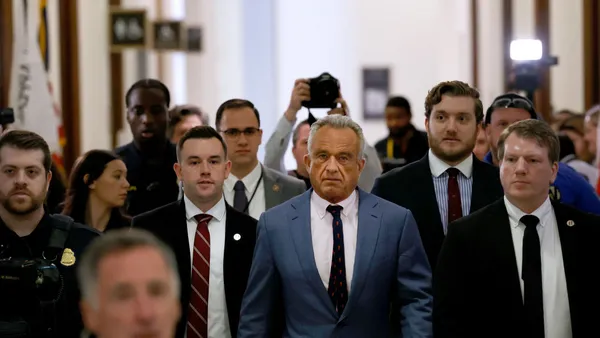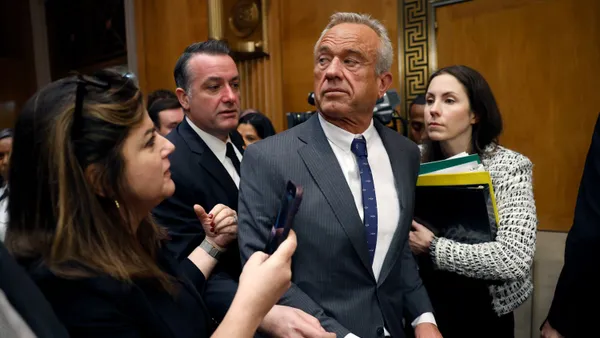Dive Brief:
- CMS will hold its annual public meeting on June 24 to hear comments on the appropriate basis for setting payment amounts for new and revised Healthcare Common Procedure Coding System codes being considered for payment under the Clinical Laboratory Fee Schedule (CLFS) for 2020.
- At the meeting, the Medicare advisory panel on Clinical Diagnostic Laboratory Tests will gather information and question presenters.
- The advisory panel also set its own public meeting for July 22-23 to focus on the discussion and recommendations for test codes that emerge from the June 24 meeting as well as other issues. Registration to attend the panel meeting in person may be completed online between April 8 and July 1.
Dive Insight:
The Medicare advisory panel will provide input to CMS on setting payment rates for new clinical diagnostic laboratory tests, including whether to use "crosswalking" or "gapfilling" processes to determine payment for a specific new test. Crosswalking is used when a new CDLT is comparable to an existing test; gapfilling is used when no comparable CDLT exists. The panel also will give advice on the factors used in determining coverage and payment processes for new tests.
CMS will develop a list of proposed determinations on the basis for setting a payment amount for each code. The agency expects to post its proposed determinations for new 2020 test codes, and its preliminary determinations for reconsidered codes, on the CMS website by early September. CMS will then request written public comments before developing final determinations of payment amounts for tests.
After the final determinations have been posted on the website, requests for reconsideration of the basis and amount of payment for a new CDLT may be presented at the following year's public meeting.
A new market-based payment system for lab tests that kicked in last year under the Protecting Access to Medicare Act faces challenges from clinical laboratories, criticism from the Government Accountability Office and questions from Senate Finance Committee Chairman Chuck Grassley.
The law was intended to save taxpayers money by tying lab spending to private market rates instead of adjusted historical data. But a GAO report in December said the new methodology could instead end up costing CMS billions in overpayments. Last week, Grassley, R-Iowa, said CMS Administrator Seema Verma had provided an inadequate response to his inquiry into the GAO report.
Labs are protesting how CMS collects data on private insurance rates for lab tests and calculates Medicare payments distributed under the lab schedule. Under PAMA, CMS sets payment rates every three years based on data collected from applicable labs, but industry says the rates do not reflect enough data from smaller labs.
The American Clinical Laboratory Association sued HHS in 2017 over the implementation of PAMA, arguing the collected data reflect only a small sampling of the laboratory market. A federal judge dismissed the case, but ACLA is in the process of appealing.
Presenters for the meeting must register and submit their presentations electronically to a dedicated mailbox at [email protected] by 5 p.m. EDT on June 10.













